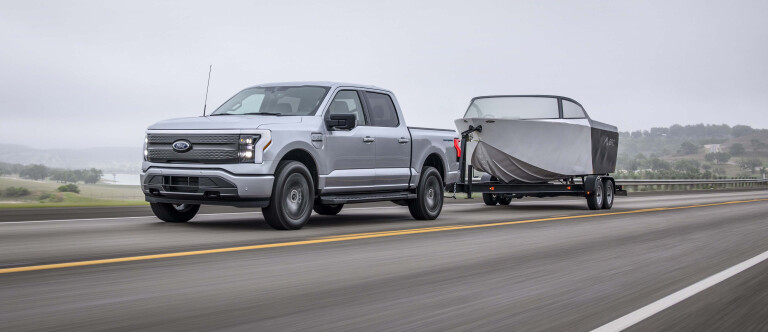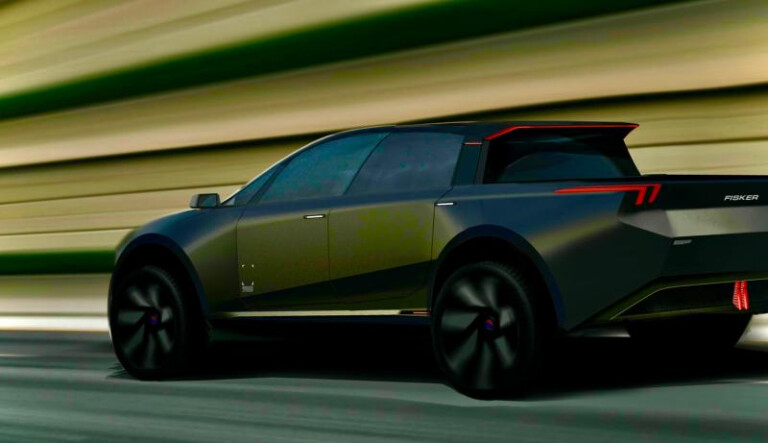
Snapshot
- EV uptake in the commercial space could improve with incentives, report says
- Introducing road user charges though would slow it down
- Commercial vehicles can't be dependant on public charging for fleets
A new report focusing on the future of electric vehicles in the commercial space has found there could be more uptake if the Government introduced the right incentives.
The study, entitled The Future of Buses and Light Commercial Vehicles is Electric, was carried out by Boston Consulting Group and looked at what opportunities and barriers there are for these kinds of vehicles.
Key findings included that price parity – said to "only be one year away" – more infrastructure (public and private as fleet vehicles can't be dependant on using public charging networks), and regulatory support were all crucial for uptake of electric utes and vans is to happen in Australia.

'Regulatory support is likely to be an accelerator for adoption through, for example, ICE [internal combustion engine] bans or incentives to switch to EVs,' it read. 'In the US, the Inflation Reduction Act (August 2022) has multiple tax credits and incentives, including US$40,000 for purchases of new electric or hydrogen trucks and buses including off highway vehicles.
'While Australia is lagging international peers in terms of regulatory support, this is expected to change following the recent federal election. The recently published National Electric Vehicle Strategy is a first sign of a stronger federal support for greater adoption of electric vehicles.
'In addition to a more robust federal climate agenda, Australian state governments have also focused on emissions reduction and other interventions, particularly in the transport sector. Targeted interventions can speed up the adoption of specific types of commercial vehicles.'

So far there aren't any electric utes on sale in Australia, however the first one – the LDV eT60 – is on its way next month and there is a Ford Ranger plug-in hybrid (PHEV) confirmed to be coming in 2024. BYD also claims to have a ute in the pipeline due late 2023.
Currently there is only one electric van on sale locally – the Mercedes eVito (some stock, available now, some coming later this year) – though until recently there was the Renault Kangoo ZE (which is being replaced by the Kangoo E-Tech soon), and there are several others on their way here in the coming months and years including; the Ford E-Transit (2024) and the Volkswagen ID.Buzz (date not yet confirmed).
Next month LDV will bring its eDeliver 9 and Mifa 9 LCVs here, and Peugeot also recently announced its first EV locally will be a version of one of its electric vans.
Importantly, the report also said though that road-user charges, such as those already in place in VIC and planned in NSW in 2027, could have great potential to put buyers off.
'While regulation in Australia is now generally very supportive of legislation, one policy on the table could slow down adoption: road user levies,' the document noted.
'Presently, electric vehicles receive an inadvertent subsidy by not paying the federal fuel excise (because they don’t purchase any fuel). But Victoria has implemented a per-kilometre levy for EVs, and other states may follow suite. While a necessary change in the long term, such policies may have a detrimental impact on EV impact in the short term.'

The report comes as the Federal Government brings in tighter emissions standards on heavy goods vehicles and buses, announcing the introduction of Euro 6 on Thursday – due to be phased in over 12 months from November 1, 2024.
“These tighter noxious emissions standards for new trucks and buses will reduce this significant pollutant in Australia, and help reduce the number of premature deaths and chronic illnesses as a result," said Transport Minister Catherine King.
“Australia has been lagging in our vehicle noxious emissions standards for years now, and this move will help bring our vehicle market into the 21st century – and into line with overseas vehicle markets.”
Further upcoming improvements to fuel quality could also help support introduction of tighter standards for light vehicles, the Government said.

Euro VI standards are already in place in the European Union and United Kingdom, and equivalent standards also apply in most developed countries, including the United States and Japan. China and India have also recently adopted equivalent standards.
The introduction of a legal emissions target is currently being consulted on by the Albanese Government as part of what could become Australia's first national EV strategy.

COMMENTS